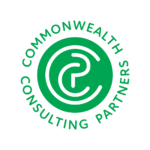PANO is a collective voice to influence state policies on behalf of more than 63,000 nonprofit employees and 100,000 nonprofit volunteers in Pennsylvania. We believe Pennsylvania nonprofit professionals grow better together.
We advance public policies that support a strong nonprofit sector in Pennsylvania to build vibrant and thriving communities. We educate and engage elected officials on issues of importance to nonprofits and the people who count on them.
Commonwealth Consulting Partners (CCP) supports PANO’s advocacy efforts. CCP is a bi-partisan, government affairs consulting firm focused on advancing effective solutions. CCP partners closely with their clients to develop and execute government affairs strategies specifically designed to meet their clients’ immediate and long-term goals.
Federal Advocacy
Many charitable nonprofits rely on volunteers to deliver vital services to their communities. Yet, the number of people volunteering have not returned to pre-pandemic levels at many organizations. Volunteers point […]
At this stage in the pandemic, charitable nonprofits are experiencing increased demand for services that outpace available funding. Greater incentives for charitable giving are needed more than ever as nonprofits […]
Overview • Nonprofit organizations are social and economic drivers in Pennsylvania. Nonprofits have over 800K employees, or 15% of the Pennsylvania workforce. We generate $116.7 billion in annual revenue, and […]
State Advocacy
In June 2023, lawmakers and nonprofit professionals relaunched Pennsylvania’s Charitable Nonprofit Caucus. Co-chaired by Representatives Abigail Salisbury and Joe Hogan as well as Senators Jay Costa and Lynda Schlegel Culver, […]
Amplifying Our Superpowers: Our Voice, Our Value, Our Impact In support of our 2023 policy priority of a Strong Nonprofit Workforce, PANO is proud to partner with the following advocacy […]
PANO is advocating for State Legislators to release funds from the American Rescue Plan Act to support the Commonwealth’s nonprofits. Contact your legislators TODAY! Click here to take action. Over […]
Yes. Every charitable nonprofit can and should make its voice heard on issues that are important to its mission and to the people it serves. As advocates, nonprofits are required to speak up about policies, laws, and regulations. Lobbying by nonprofits is permitted by law. Unless a charitable nonprofit has elected to have a 501(h) designation, organizations may not spend a “substantial” portion of revenue on lobbying. The IRS does not define substantial.
On the federal level, lobbying is contact with a legislator to influence legislation. On a state level for PA, it is contact with a legislator or any member of state government to influence legislation or administrative action. This also includes time spent planning or researching in preparation for a lobbying contact. For reporting requirements, organizations should track the amount of time spent on activities that fit the federal definition of lobbying whether that be on a federal, state, or local level.
Educational contacts that do not include a call to action are not considered in the definition of lobbying.
Absolutely. Nonprofits have a constitutional right and responsibility to engage in policy-making processes. Though federal regulations require that nonprofits remain strictly nonpartisan (neither supporting nor opposing candidates for elected office), much can and should be done, including voter education guides, voter registration, get-out-the-vote drives, and candidate forums. Each of these activities is legally permissible if conducted in a strictly nonpartisan manner.
No. While lobbying by nonprofits is permitted by law, charities are strictly prohibited from electioneering. Electioneering is engaging in any political campaign on behalf of, or in opposition to, any candidate for public office. Charities cannot endorse any candidates, make donations to their campaigns, engage in fundraising, distribute statements, or become involved in any other activities that may be beneficial to or detrimental to any candidate for public office.
Charities must operate in nonpartisan mode. Charities must be aware that engaging in prohibited campaign activity could result in excise taxes imposed on the money spent electioneering, loss of tax-exempt status, and more severe penalties for flagrant violations.